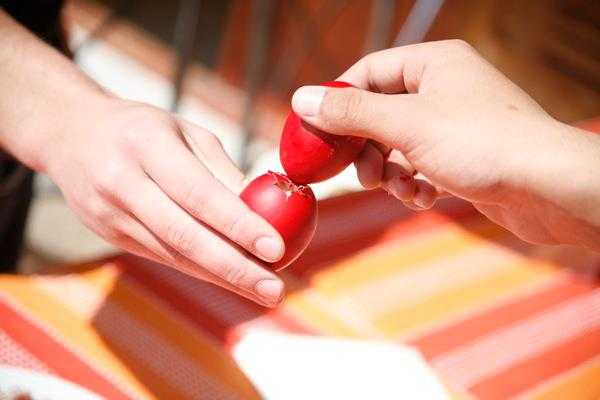|
By: B. Mitidieri It is safe to say that most of the Greek population is Christian, much like us in Brazil. Still, their culture is made up of approximately 90% of Greek Orthodox followers who practice Easter a bit differently than what the Western world is used to. Firstly, the Catholic Easter follows the Gregorian calendar, so that Jesus' resurrection is celebrated on April the 1st this year. However, the first difference between them is the dates: Greek Easter accompanies the Julain calendar, meaning that it is celebrated on the 8th. Both of the dates had the same origins and the same criteria. In 325 AD, it was decided that Easter would occur on the first Sunday after the first full moon prior to the Jewish Passover. However, when the church split into Catholic and Orthodox in 1054, everything changed because the Catholic ruler decided that Easter should not occur after Passover and that they should start following the Gregorian calendar instead of Julian after 1582. The Orthodox simply followed the date that was originally decided. But, what really makes it so different? Well, Easter is always associated with eggs, right? Well, the Western world simply celebrates it with chocolate treats and the entertaining Easter Bunny; meanwhile, the Greek people also celebrate it with a contest of boiled egg breaking! Believe it or not, on Saturday, Orthodox families gather together and paint their boiled eggs red to symbolize the blood of Christ. Furthermore, there is a competition where people tap or hit the tips of the egg they have chosen, with someone else's. The winner is the one whose egg is most intact and therefore less broken after the competition. Then, everyone else eats the remainders of their eggs in addition to the Easter feast. The day is concluded with the Easter bread, tsoureki. Normally, the elders of the family bake this cake-bread and hide a Greek-eye or a Greek drachma (the former currency). Finally, each member of the family cuts a piece of it and the one whose piece contains the coin/eye will be lucky that year. It might be important to add that this is a religious tradition is coincidentally practiced by most of the Greek people, due to the great numbers who follow the religion. The Russian-Orthodox celebrate Easter on the same day and with the same meaning behind it, but they do not have the same customs necessarily. They also boil and paint their eggs but they do not take part in the egg breaking, for example. The Catholic Church, in Brazil, has been shown to celebrate Easter with a mass on Sunday. Additionally, it is common to reenact the moment in which Jesus resurrected. However, the Greek Orthodox customs involve the population reuniting in the church on Friday and performing a ritual mourning Jesus' death represented by a casket carried by noble priests who stroll around the altar. On Saturday at midnight, at the church once more, Jesus' resurrection is announced by the priests, where the main candle is lit and passed through all of the civilians following the ceremony. As people leave the church, which is normally located on a hilltop, they light candles so that the mountain is fully illuminated while repeating ''χριστός ανέστη'', which translates to 'Jesus resuscitated'. I recently discovered that this tradition is unknown to many people even though it always took a big part in my life. All of the added members of my family who are not Greek have embraced this tradition immensely and look forward to it every year. After only months of being married to my mother, my father brought a wooden egg from home and painted it red and, of course, won the egg competition that year. I am sharing this curiosity for all of our Pauleans, in order to create an opportunity to enrich people’s knowledge of world culture. It would be a very fun way to celebrate the month of April or to simply be aware of it next time around.
0 Comments
Leave a Reply. |
Categories
All
Archives
June 2024
|

